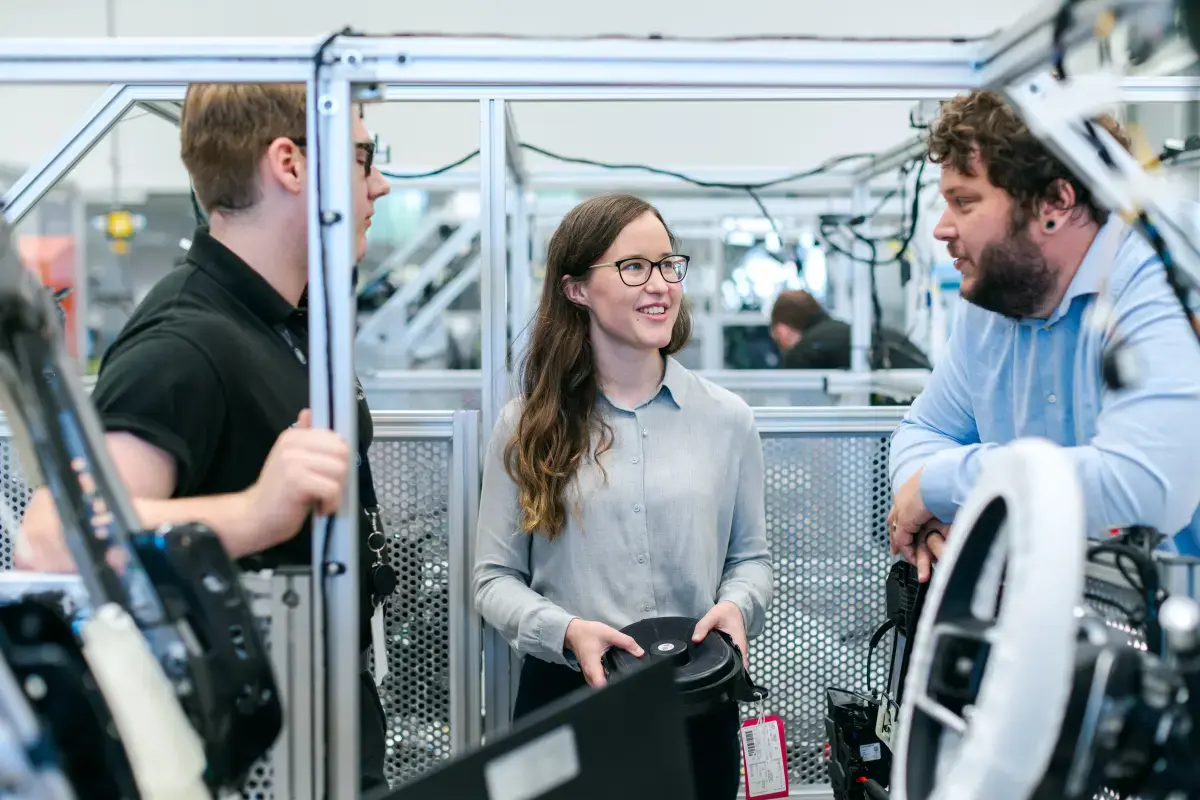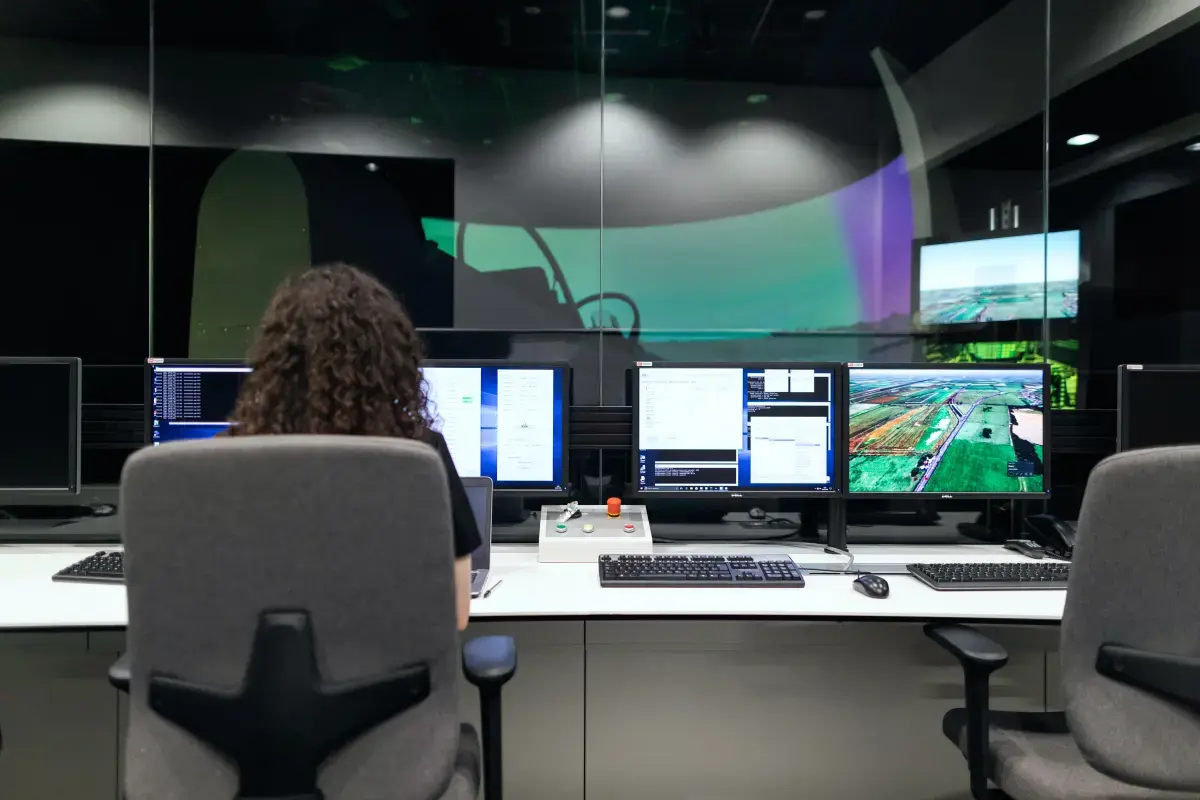
Kubernetes Developer Job Description
What is a Kubernetes Developer Professional?
A Kubernetes developer is responsible for the development, testing and roll-out of code changes related to a specific project or application that is deployed on the Kubernetes container orchestration platform.

What does a Kubernetes Developer Expert do?
A kubernetes engineer focuses on the administration and maintenance of a live Kubernetes cluster, ensuring that it remains up and running while also providing support to end users who wish to deploy their own applications onto the platform.

What are the Skills of a Kubernetes Developer?
A Kubernetes engineer needs a deep understanding of container orchestration and management. They must be able to design and implement scalable, highly available systems using Kubernetes. They should have experience with other cloud-based technologies such as Amazon Web Services (AWS) or Google Cloud Platform (GCP). Additionally, they need strong Linux skills and a good understanding of network fundamentals. -In order to work with Kubernetes, developers need intimate knowledge of containers and how they function. This includes understanding how to containerize applications as well as how to manage and orchestrate them at scale. Developers also need to know when it is appropriate to use containers versus other types of compute resources such as VMs or bare metal servers. -Kubernetes works best with microservices-based architectures where decoupled services can be deployed independently without affecting the overall system.

What makes an Expert Kubernetes Developer?
As such, developers working with Kubernetes should have a strong understanding of distributed systems principles and design patterns. They should also be familiar with common service discovery mechanisms like DNS or Consul, load balancing solutions like NGINX or HAProxy, and monitoring tools like Prometheus or Grafana. -Finally, because Kubernetes is extremely configurable (almost too much so!), developers must be able grasp its complex YAML configuration syntax in order to define pods, deployments, replication controllers, secrets/configmaps

What level of Experience & Qualifications are required to be a Kubernetes Developer?
Industry Experience: - Experience with deployment and management of Kubernetes clusters in production environment, ideally as an SRE or DevOps engineer. - Expert-level knowledge of Kubernetes fundamentals like nodes, pods, services, deployments etc., and their interactions with the underlying infrastructure. - Hands-on experience with containerization technologies such as Docker or RKT to package applications for use in a distributed system managed by Kubernetes. - Knowledge of software development cycle including coding best practices such as CI/CD pipelines and version control systems for managing code changes within a team environment. • Training: - Completion of official courses from Kubernets providers like Redhat OpenShift Container Platform (OCP) certification program or Google Cloud Certified Professional –Kubernets Engine certification program is highly recommended to demonstrate commitment to learning technology advancements related to the field . • Qualifications: - Certifications from leading cloud providers such as AWS Solutions Architect Associate Certification exam or Azure AZ-103 Microsoft Azure Administrator Certification exam are desirable qualifications that indicate deep understanding on different aspects related to Cloud Computing and operations processes needed when setting up workloads on top these platforms • Education: Degree in Computer Science/Engineering preferred but not required

What is the Salary of a Kubernetes Developer?
The salary range for a junior Kubernetes engineer can vary widely depending on the employer, location, and level of experience. For example, entry-level salaries in the United States average around $90k while more experienced engineers make upwards of $120k. Entry-level qualifications usually include knowledge of software development languages such as Python or Golang, basic understanding of DevOps tools like Docker or Ansible and hands-on experience with container orchestration systems such as Kubernetes. These skills are typically supplemented by other related technologies such as Cloud Native Computing Foundation (CNCF) products such as Helm or Istio for managing distributed applications across multiple clusters. Mid-level roles involve setting up a production grade Kubernetes cluster from scratch along with engineering services to ensure high availability and scalability over time while troubleshooting any issues that may come up during deployments. Mid-levels also require strong design skills to combine various components into complex architectures based on customer requirements and best practices set by cloud providers like AWS/GCP/Azure etc., Further responsibilities include monitoring operational performance metrics using appropriate tooling stack (like Prometheus & Grafana) ensuring secure access control policies are enforced at all times followed by audit logging for end to end traceability for compliance purpose if required . Salaries at this level may start from ~$130-$140K+ depending upon desired qualifications & certifications in addition to relevant work experiences . Senior positions focus more on designing large scale distributed systems following industry standards along with leading team members from technical point view , providing mentorship , advising on architectural decisions , tuning system parameters in order to maximize efficiency throughout given infrastructure thereby keeping cost down . Senior engineers also oversee cross functional teams supporting CI/CD pipelines deployment automation alongside quality assurance aspects coupled with security management processes making sure deployed solutions abide the companys standard guidelines & regulatory compliances accordingly . The expected pay range is much higher than mid levels ranging between 150 - 200K + annually depending again upon seniority & applicable benefits package offered by respective employers

What are the Working Conditions for a Kubernetes Developer?
Generally, a Kubernetes engineer works with an engineering team to deploy and manage applications within a Kubernetes cluster. This involves designing the overall architecture of the system, performing software build-outs, configuring networking services and implementing security measures. The primary focus is on ensuring that all components are working optimally within the cluster while also providing ongoing maintenance and optimization tasks. The engineer should be comfortable in a Linux environment as well as having expertise in various scripting languages such as Bash or Python for automation purposes. They will need to have knowledge of containerization technologies such as Docker/Kubernetes along with experience in cloud providers such AWS/GCP etc., so they can utilize their already existing services to provide more scalability and reliability during deployments. In addition, they must understand configuration management tools like Chef/Puppet for eventual consistency across nodes where needed for fault tolerance or high availability deployed applications design patterns. A kubernetes engineer might also spend time helping developers debug problems related to microservices running inside containers on clusters; this could involve troubleshooting performance issues from those services through log analysis or tracing libraries . Its important that engineers have good communication skills since theyll often be interfacing directly with development teams regarding technical decisions both at planning stages and post deployment processes when feedbacks needs processing quickly upon release updates A solid understanding of network architectures including routing protocols (e.g., BGP) is also beneficial since most successful deployments require some form of integration between different parts of the infrastructure (e..g LANs, WANs). Finally it’s necessary that any candidate understand best practices around DevOps principles & CI/CD pipelines so you can ensure a quality product gets delivered always meeting customer requirements

What are the roles and responsibilities of a Kubernetes Developer?
Design and implement solutions for deploying, managing, and scaling Kubernetes clusters
Plan and execute rolling updates and deployments of applications on Kubernetes clusters
Monitor the health of Kubernetes clusters and diagnose & troubleshoot issues as they arise
Automate tasks related to provisioning, configuring, & maintaining Kubernetes cluster infrastructure
Work with development teams to containerize applications according to best practices 1. Creating and maintaining kubernetes clusters
Analyzing and optimizing cluster performance
Managing kubernetes resources such as storage, networking, and compute resources
Deploying applications on kubernetes clusters
Scaling applications according to load demands
Securing access to kubernetes clusters and managing authentication and authorization
Integrating CI/CD pipelines with kubernetes

Where can I find Kubernetes Developer jobs?
- Create a profile on gigexchange and promote your Kubernetes Developer skills to advertise you are Open to New Work Opportunities
- Ensure your Resume (or CV), or online work profile is up to date and represents your skills and experience. Ensure your reputation reflects your ability & attitude.
- Apply for Kubernetes Developer Jobs advertised on gigexchange.
- Practise Kubernetes Developer interview techniques to ensure you represent your personality and ability succinctly and confidently.
- Accept the job offer if the salary meets your expectations and the employer mission and purpose reflects your core values.
Jobs
What are the best job boards for Kubernetes DevOps jobs?

How can I hire Kubernetes Developer staff online for my business?
The best job board for recruiting Kubernetes Developer experts is gigexchange.com. Advertise full-time, part-time or contract jobs to find, hire & recruit trusted, experienced and talented Kubernetes Developer candidates near you.

Are Kubernetes Developer roles in demand in 2026?
Kubernetes Developer experts are still in high demand in 2026. If you are an experienced Kubernetes Developer or looking to train and become one. The job market is looking strong for Kubernetes Developer jobs near me.